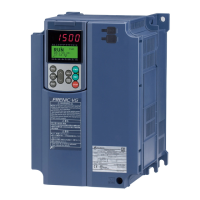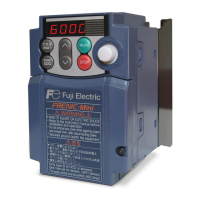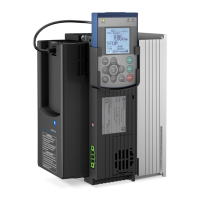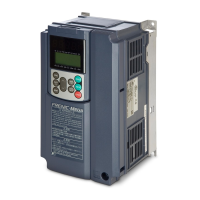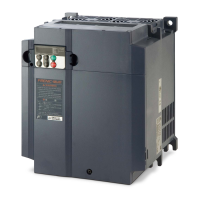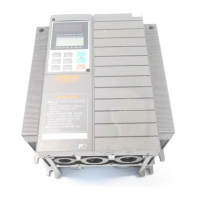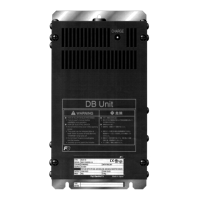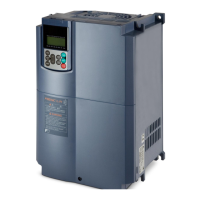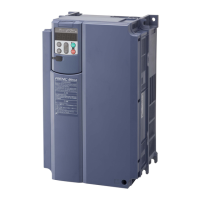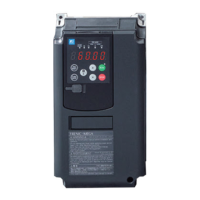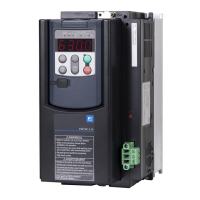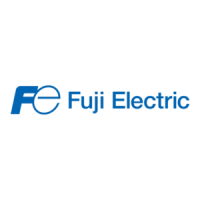1.3 Precautions for Using Inverters
1-6
Fuji Electric strongly recommends installing inverters in a panel for safety reasons, in particular, when installing the
ones whose enclosure rating is IP00.
When installing the inverter in a place out of the specified environmental requirements, it is necessary to derate the
inverter or consider the panel engineering design suitable for the special environment or the panel installation
location. For details, refer to the Fuji Electric technical information “Engineering Design of Panels” or consult your
Fuji Electric representative.
The special environments listed below require using the specially designed panel or considering the panel
installation location.
Environments Possible problems Sample measures Applications
Highly concentrated
sulfidizing gas or other
corrosive gases
Corrosive gases cause parts
inside the inverter to corrode,
resulting in an inverter
malfunction.
Any of the following measures may be
necessary.
- Mount the inverter in a sealed
panel with IP6X or air-purge
mechanism.
- Place
the panel in a room free from
influence of the gases.
Paper manufacturing,
sewage disposal, sludge
treatment, tire
manufacturing, gypsum
manufacturing, metal
processing, and a particular
process in textile factories.
A lot of conductive
dust or foreign
material (e.g., metal
powders or shavings,
carbon fibers, or
carbon dust)
Entry of conductive dust into
the inverter causes a short
circuit.
Any of the following measures may be
necessary.
- Mount the inverter in a sealed
panel.
- Place the panel in a room
influence of the conductive dust.
Wiredrawing machines,
metal processing, extruding
machines, printing presses,
combustors, and industrial
waste treatment.
A lot of fibrous or
paper dust
Fibrous or paper dust
accumulated on the heat sink
lowers the cooling effect.
Entry of dust into the inverter
causes the electronic circuitry
to malfunction.
Any of the following measures may be
necessary.
- Mount the inverter in a sealed
panel that shuts out dust.
- Ensure a maintenance space for
periodical cleaning of the heat sink
in panel engineering design.
- Employ external cooling when
mounting the inverter in a panel for
easy maintenance and perform
periodical maintenance.
Textile manufacturing and
paper manufacturing.
High humidity or dew
condensation
In an environment where a
humidifier is used or where the
air conditioner is not equipped
with a dehumidifier, high
humidity or dew condensation
results, which causes a
short-circuiting or malfunction
of electronic circuitry inside the
inverter.
- Put a heating module such as a
space heater in the panel.
Outdoor installation.
Film manufacturing line,
pumps and food processing.
Vibration or shock
exceeding the
specified level
If a large vibration or shock
exceeding the specified level is
applied to the inverter, for
example, due to a carrier
running on seam joints of rails
or blasting at a construction
site, the inverter structure gets
damaged.
- Insert shock-absorbing materials
between the mounting base of the
inverter and the panel for safe
mounting.
Installation of an inverter
panel on a carrier or
self-propelled machine.
Ventilating fan at a
construction site or a press
machine.
Fumigation for export
packaging
Halogen compounds such as
methyl bromide used in
fumigation corrodes some
parts inside the inverter.
- When exporting an inverter built in
a panel or equipment, pack them in
a previously fumigated wooden
crate.
- When packing an inverter alone for
export, use a laminated veneer
lumber (LVL).
Exporting.
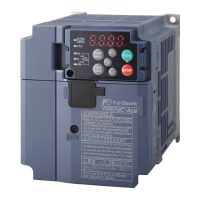
